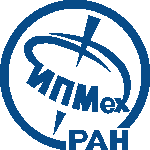
|
ИСТИНА |
Войти в систему Регистрация |
ИПМех РАН |
||
Third Pole Science Summit: TPE-CSTP-HKT Joint ConferenceКонференция
- Охват: Международная
- Даты проведения: 10-12 июля 2017
- Место проведения: Kunming, China
-
Организатор:
Third Pole Environment(TPE) Programme, the CAS Center for Excellence in Tibetan Plateau Earth Sciences (CETES), the China Society on Tibetan Plateau (CSTP) and the Organizing Committee of the 2017 Himalayan-Karakorum-Tibet (HKT) Workshop - Число участников из МГУ: 1
- Число докладчиков: 100
- Веб-сайт: http://tpss2017.tpe.ac.cn/dct/page/1
-
Описание конференции:
After the North and South Poles, the Third Pole is the highland core of Asia, and includes the Hindu-Kush, Karakorum, Himalayas, Tibetan Plateau and all the mountain ranges that surround it. This region provides the water resource and ecosystem services to billions of people in Asia. It is well accepted that the regional environmental change will have huge implications for millions of people living in the Third Pole region and downstream areas. Understanding the mechanisms of the earth system multi-sphere (atmosphere, cryosphere, hydrosphere, lithosphere, biosphere and anthroposphere) interactions in the Third Pole is becoming one of the hottest topics for global environmental research, and it is also an urgent task for the scientific community to support the sustainable development of the Third Pole region. Third Pole Science Summit: TPE-CSTP-HKT Joint Conference will take place in Kunming, China from 10 to 12 July, 2017. The Summit is co-hosted by the Third Pole Environment(TPE) Programme, the CAS Center for Excellence in Tibetan Plateau Earth Sciences (CETES), the China Society on Tibetan Plateau (CSTP) and the Organizing Committee of the 2017 Himalayan-Karakorum-Tibet (HKT) Workshop. The Third Pole Science Summit comes at a time when TPE, CETES, CSTP and HKT are all reaching their respective milestones: the international program of TPE has expanded its mission to Pan-TPE, a key region for “the Belt and Road Initiative”; CETES has been formally approved by CAS for full operation; CSTP has established the TPE Science and Education Center (TPE-SEC) through the support of the China Association for Science and Technology (CAST); and the HKT is embracing ever more interdisciplinary studies over the Third Pole region. This Summit is designed to bring together leading scientists in the field of the Third Pole Earth System science to share their latest research achievements. The Third Pole Science Summit is organized jointly by the Institute of Tibetan Plateau Research, CAS (ITPCAS) and Kunming Institute of Botany, CAS (KIBCAS).
- Добавил в систему: Иванов Михаил Николаевич
Доклады:
- 2017 Assessing the robustness of cosmogenic nuclide dating in reconstructing regional patterns of glaciation in Central Asia: towards a paleoglaciological reconstruction for the LGM (Устный)
- Авторы: Stroeven A.P., Zhao J.D., Fu P., Gribenski N., Heyman J., Harbor J.M., Ivanov M.N., Li Y.K., Liu G., Petrakov D.A., Zhou L.P., Caffee M.W., Chen Y.X., Codilean A.T., Cui Z.J., Hättestrand C., Jansson K.N., Li Y.N., Lifton N.A., Orkhonselenge A., Preusser F., Rogozhina I., Rudoy A.N., Usubaliev R., Walther M., Zhang W., Blomdin R.